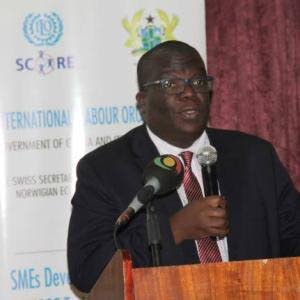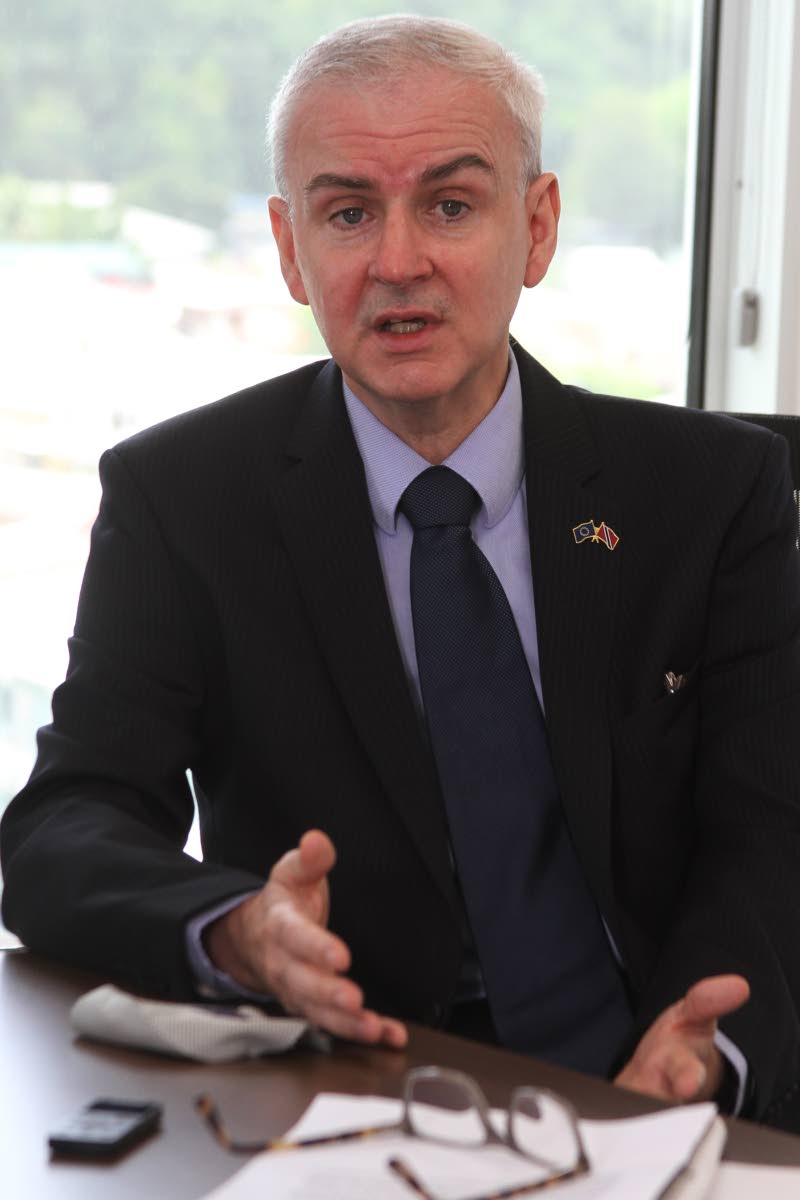We can only progress by working together

Joint op-ed by United Nations Resident Co-ordinator Dennis Zulu and EU Ambassador Peter Cavendish on the occasion of the 16 Days of Activism
THE International Day for the Elimination of Violence Against Women and Girls and the 16 Days of Activism (from November 25) that follow are important observances that allow us to pause and reflect on how far we have come and what still needs to be done to advance the cause of gender equality and eliminate the scourge of gender-based violence (GBV) from our communities.
It may seem upon reflection that we have not made significant advances in the fight or, worse, that we are witnessing a significant backlash to the advancement of women’s rights – a proverbial one step forward and two steps backward. Sadly, no country is on track to achieve gender equality by 2030. Incidences of GBV continue unabated. World events such as the war in Ukraine along with conflicts in many other parts of the world, the covid19 pandemic and the migrant and climate crises have left too many women and girls exposed to exploitation and violence.
But rather than focus on the negative, let us use these 16 days to raise awareness about the need to work together and to continue to bring our resources to bear in a fight that we must win, not only for our women and girls, but also for the welfare and advancement of society.
The European Union and the United Nations have recognised the need for bold and united action at all levels to eradicate GBV. It is for this reason that this year’s theme, “UNiTE: Activism to end violence against women and girls,” was decided upon. It is the reason the European Union and the United Nations introduced the Spotlight Initiative (Spotlight) in 2017, and why we continue to advocate for a groundswell of the women’s rights movement.

The good news is that our initial investment of EUR500 million globally (with EUR50 million allocated for the Caribbean) has begun to bear fruit. Here in TT, for example, the Spotlight programme achieved the following:
* Approval of the National Clinical and Policy Guidelines on Intimate Partner Violence and Sexual Violence and training of 200 plus healthcare workers to provide quality of care to survivors within the health sector.
* Training of 220 officers from the police service in gender-responsive policing using global best practices in victim and survivor-centred, trauma-informed approaches and commitment from the Police Academy to train all 7,000 officers.
* Launch of the Primero child protection information management system and the completion of an instrumental study on social and cultural norms which contribute to violence against children.
* Development of a workplace policy against GBV and sexual harassment and training of trade union members and employers across the country.
* Training of 500 plus members of the judiciary, judicial staff and partners within the Law Association to re-engineer attitudes and improve case management to improve the survivor experience in Family Court.
* Development of a strategy to integrate family violence plans and programmes into local government.
* Strengthening of the capacity of civil society and the women’s movement to scale up their work within communities.
* Sensitisation of 1500 plus youth in police youth clubs, children’s homes and schools across the country around GBV, child abuse and bullying and support to youth to promote positive change in their own communities through digital media influencer campaigns.
We are also encouraged by the leadership shown by our civil society partners. The recently formed Caribbean Gender Alliance of more than 40 CSOs, for example, is a significant adjunct to the movement to end GBV in the region. Their current “I Have the Power” campaign is both an important message and mission. We look forward to all that will ensue from the collective action of these groups in the coming months and years.
But Spotlight is not the only action we are undertaking in this fight.
Through the European Union’s Gender Action Plan III (GAP III), for example, the EU is, in its external action, actively engaging men and boys and tackling all the intersecting dimensions of discrimination, giving special attention to factors such as disability, migrant status, age and sexual orientation. The GAP III along with the EU’s guiding document – The EU Strategic Approach to Women Peace and Security, which seeks to prevent conflict-related violence, including all forms of sexual and gender-based violence – are used in our decision-making and policy dialogue with our partner countries.
The EU and the UN remain committed to use the resources at our disposal to advance the cause for gender equality, but there remains a tremendous need. We are grateful for the commitment and action from the TT Government and other stakeholders, but we wish to encourage more development and other partners to get involved in this movement for change. Together we can reverse the trends and create a more equal, inclusive and peaceful world.



Comments
"We can only progress by working together"